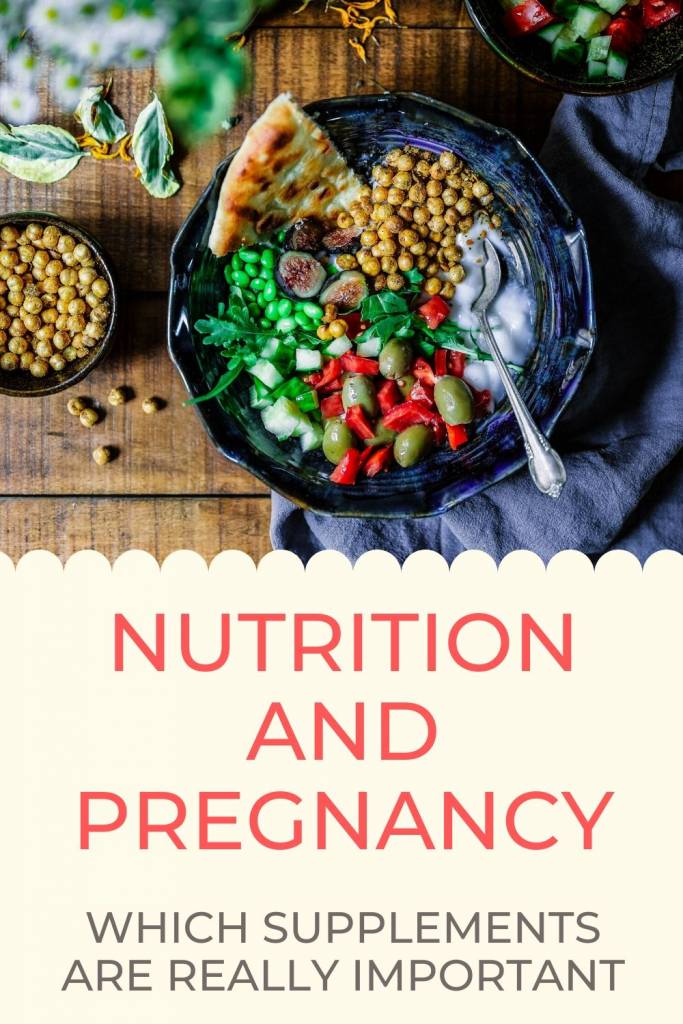Healthy nutrition and pregnancy must be considered as codependent. It is important to take supplements and make sure you take them as recommended.
The three stages of pregnancy – preconception, pregnancy and lactation – have specific nutritional requirements. You need supplements to endure through all stages.
Nutritional supplements in pregnancy and lactation are important for the mother and, therefore, also for the health of the child. Science has shown that the mother’s diet has a decisive influence on the development of pregnancy and pregnancy.
Many problems can be prevented by taking care of the nutritional status of women during periods of preconception, pregnancy and lactation. Each stage has its requirements and precise indications of what has been demonstrated best according to the physiological processes underway.
Nutrition in preconception
Preconception maternal nutrition plays a fundamental role in reproductive health, since it affects both fertility and the beginning of pregnancy. The development of the fetus depends on the nutritional status of the mother from the very first moment.
If you want to get pregnant, you need to make a thorough doctor’s check-up before planning the pregnancy. In this way you will start having a healthy lifestyle and correct, if necessary, any inappropriate habits you may have.
Long-chain omega-3 fatty acids, docosahexaenoic acid (DHA), and primarily eicosapentaenoic acid (EPA) contribute to overall health maintenance. They are important in the proper function of the heart, blood vessels, lungs, the immune system and the endocrine system. On the other hand, minerals and vitamins are essential at the time of conception and implantation of the fertilized egg.
Since before having a positive pregnancy test, the mother’s nutritional status is already intervening in pregnancy
Nutrition and pregnancy – The necessary supplements
There are studies that show the convenience of including nutritional supplements in the pregnant woman’s diet. These supplements include nutrients such as folic acid, vitamin B12, iron, iodine and other micronutrients such as vitamins and minerals
Folic Acid (Vitamin B9) and Vitamin B12
They are essential for multiplication and cell division. Folic acid acts from the beginning of pregnancy, so recommendations are for pregnant women to use supplements.
Iodine
During pregnancy, the needs of iodine that are related to the correct growth and intellectual development of the child increase. Its deficit can lead to congenital hypothyroidism.
Iron
Iron needs increase in pregnancy to ensure the mother’s reserves and the adequate contribution to the baby. It is a very important mineral, since it is involved in the transport of oxygen to the cells.
Omega-3 fatty acids
It is essential nutrients for the body. DHA contributes to the brain, visual and ocular development of the baby.
Vitamin D
Adequate levels of vitamin D in the mother are important during pregnancy so that calcium is absorbed correctly. In addition, vitamin D is necessary for the child’s bone growth and development.
Read more: Signs Of Deficiency In Vitamins You Should Not Ignore! Act On Time!
What components are in nutritional supplements for breastfeeding?
The nutritional needs during breastfeeding are considerably greater than during pregnancy. The baby receives most of the essential nutrients for its development at the expense of maternal deposits, through milk. Among the nutrients that carry the nutritional supplements indicated for this stage are:
Folic Acid (Vitamin B9)
During breastfeeding, mother’s folates may decrease due to their passage into breast milk. Folic acid contributes to psychological function, and decreases tiredness and fatigue.
Vitamins A and D
The best source of vitamin A for the infant is the breast milk. The concentration of vitamin D in breast milk depends on the mother’s vitamin D levels, but is important since it contributes to the use and abortion of calcium.
Iodine
A woman who nurses needs almost twice the amount of iodine as an adult to ensure that her child receives all the amount she needs through milk. Iodine contributes to normal cognitive function.
Calcium and iron
The mother’s calcium needs increase considerably. Calcium is important for the normal energy metabolism and is necessary for bone maintenance, and iron for the formation of red blood cells and hemoglobin.
Omega-3 fatty acids
They are necessary nutrients for the body. Moreover, DHA contributes to the normal brain and eyes development of the infant fed with breast milk.
You obtain the beneficial effect with a daily intake of 200 mg of DHA, in addition to the recommended daily intake of omega-3 fatty acids for adults, about 450 mg of DHA and the total EPA daily.
Don’t forget to SHARE the nutrition and pregnancy codependence info with your friends and family on your social networks!

